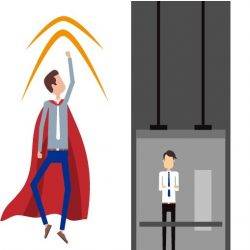October 11, 2017
Traditional department-based office layouts reduce efficiency and collaboration, say bosses

Nearly two thirds (64 percent) of senior executives say their offices are still structured on a traditional departmental basis, despite the fact that the majority of those polled in a recent survey (94 percent) believe project efficiency could increase significantly if they simply re-arranged their office seating plans to promote cross-departmental collaboration between team members. The new report Agile Ways of Working: The Great Leadership Disconnect from digital consultancy, Red Badger, claims that not only do these senior decision makers believe in the promotion of collaboration, but four out of five (81 percent) digital leaders in organisations who were additionally surveyed, strongly believed that an inflexible office layout actively led to delays in launching a product or service into the market or to customers. “Waterfall” ways of working (62 percent) and teams working on multiple projects at once (51 percent) were also among the most cited reason for delays in the past.














 Perhaps it’s something to do with the housing issues many people from the younger generations now have to deal with; i.e. either live with parents or endure an overpriced house share, but those under 35 are reported to actually prefer working from the office to remote or home working. This differs from baby boomers, who would rather work from home. According to the survey by Maintel there are differing preferences between the multi-generational workforce, with those aged under 35 feeling they are most productive in the office (48 percent), while only 19 percent of those above 55 agree. Another reason why younger workers cling to the office is due to the fact that they require the face-to-face support of experienced co-workers. The survey also discovered that 28 percent found getting hold of colleagues or managers a challenge when working remotely. And it may also be down to the social aspects of office life and when seeking promotions – ensuring the visibility of hard work. On the other hand, older employees have responsibilities at home, and remote working allows them to be more efficient with their time.
Perhaps it’s something to do with the housing issues many people from the younger generations now have to deal with; i.e. either live with parents or endure an overpriced house share, but those under 35 are reported to actually prefer working from the office to remote or home working. This differs from baby boomers, who would rather work from home. According to the survey by Maintel there are differing preferences between the multi-generational workforce, with those aged under 35 feeling they are most productive in the office (48 percent), while only 19 percent of those above 55 agree. Another reason why younger workers cling to the office is due to the fact that they require the face-to-face support of experienced co-workers. The survey also discovered that 28 percent found getting hold of colleagues or managers a challenge when working remotely. And it may also be down to the social aspects of office life and when seeking promotions – ensuring the visibility of hard work. On the other hand, older employees have responsibilities at home, and remote working allows them to be more efficient with their time.

















